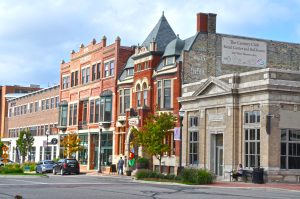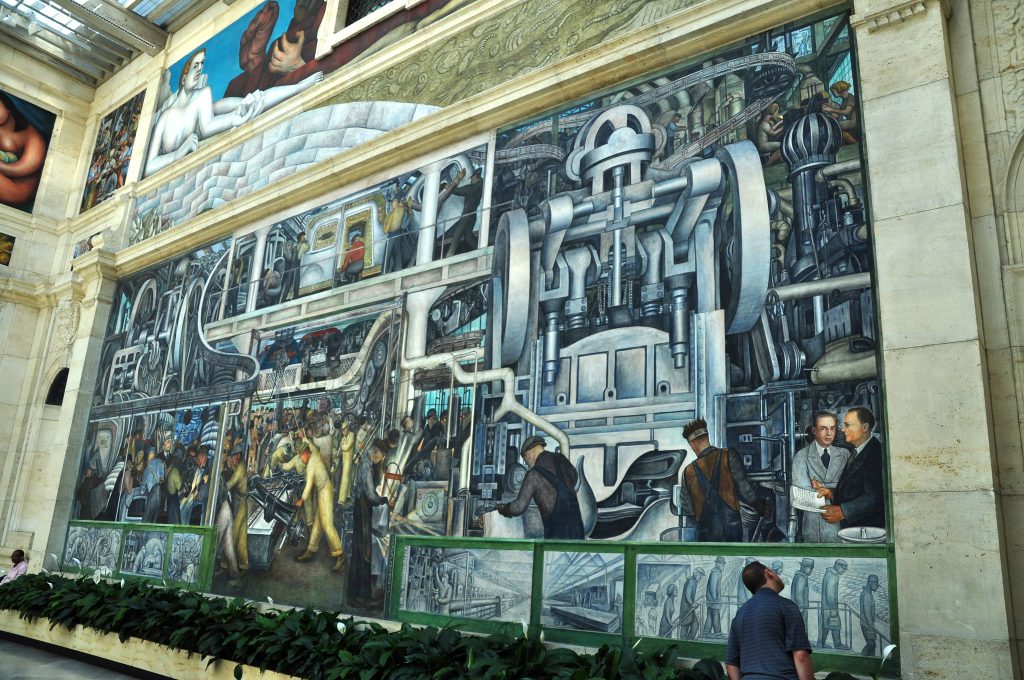This guest blog comes from Ted Howard, co-founder and president of The Democracy Collaborative.
As our nation continues to suffer a staggering health crisis, the unprecedented economic shutdown induced by the pandemic is leading to a shattered economic landscape. Shattered with it is the possibility of returning to the status quo before COVID-19. We are faced with a choice of how to replace it: do we double down on the existing economic strategies that have drained our communities, or do we use this time to adapt and reinvest in local economies?
Already, thousands of local businesses have died and millions of jobs have been lost. Projections of the cascading effects of local economic dislocation are distressing:
- About 40 million people have been laid off, furloughed, or simply fired as a result of the COVID pandemic economy. The University of Chicago estimates that 42% of the recent layoffs will result in permanent job loss. True unemployment today stands at roughly 22%—nearly 1930s Depression-era levels.
- A University of California study found that the number of active business owners in the United States plummeted 22% from February to April 2020. The drop in business owners was the largest on record, and losses were felt across nearly all industries. Main Street America projects that 7.5 million small businesses may be permanently lost.
- Businesses owned by people of color are being particularly hit hard: 41% of Black-owned businesses and 32% of Latinx businesses in the United States went under this spring. Immigrant business owners experienced substantial losses of 36%.
- And meanwhile, more than $2 trillion of private equity— – or what some are calling “Vulture Capital”—is sitting on the sidelines waiting to swoop in and buy up our distressed local economies.
Our choices now are between an “Amazon recovery” in which wealth and power increasingly are concentrated in the hands of a small group of global corporate owners, or an economy that is more democratic, in which wealth and power is shared by all of us, and in which the diversity of our local economies is maintained and strengthened.
That is why the concept of “Community Wealth Building” has never been more relevant.
Community Wealth Building is a system-changing approach to community economic development that works to produce broadly shared economic prosperity, racial equity, and ecological sustainability through the reconfiguration of institutions and local economies on the basis of greater democratic ownership, participation, and control.
Community Wealth Building challenges the underlying logic and failures of the trickle-down, neoliberal economic development model our cities and states have used for the past few decades.
Community Wealth Building is:
- System-changing – it’s not tinkering around the edges, but it is driving the deep transformation we need to bring about fundamentally different outcomes for our economy—outcomes such as closing the racial wealth gap and ensuring the jobs we create are decent and family-supporting.
- It’s broadly-shared economic prosperity, racial equity and sustainability—not a faceless, placeless economic process that claims that it will lift all boats but actually doesn’t.
- It’s a reconfiguration of local economies, going beyond policy, politics, and projects to building institutions and structures that operate in very different ways based on local democratic ownership, participation, and control.
Several cities in the United States have established Offices of Community Wealth Building or are financing key elements of the community wealth frame: enterprises such as worker co-ops, employee-owned firms, public banks, and land trusts. In Cleveland, OH, a robust network of worker-owned businesses—the Evergreen Cooperatives—is providing hundreds of jobs for the formerly unemployed and incarcerated while offering living wage jobs and profit sharing. Anchor institutions like hospitals and health systems are using this frame to leverage their economic power—localizing their purchasing, hiring, and investment practices.

In the coming weeks and months, literally trillions of dollars will flow from the federal government to stimulate state and local economies. We need to mobilize now to make Community Wealth Building the basis for protecting and preserving our local small businesses—and ensuring our local economies are reparative and inclusive by design, lifting up those who have been historically marginalized and exploited.
It’s past time to defund Economic Development as practiced for the past 40 years—with giveaways to big corporations that pit communities against each other only to abandon them in search of the next incentive—and fund Community Wealth Building to rebuild our economy and our communities to be democratic, vibrant, equitable, and sustainable— so that they work for all of us.
Ted Howard is the co-founder and president of The Democracy Collaborative, an action-oriented think tank to promote a democratic economy.
